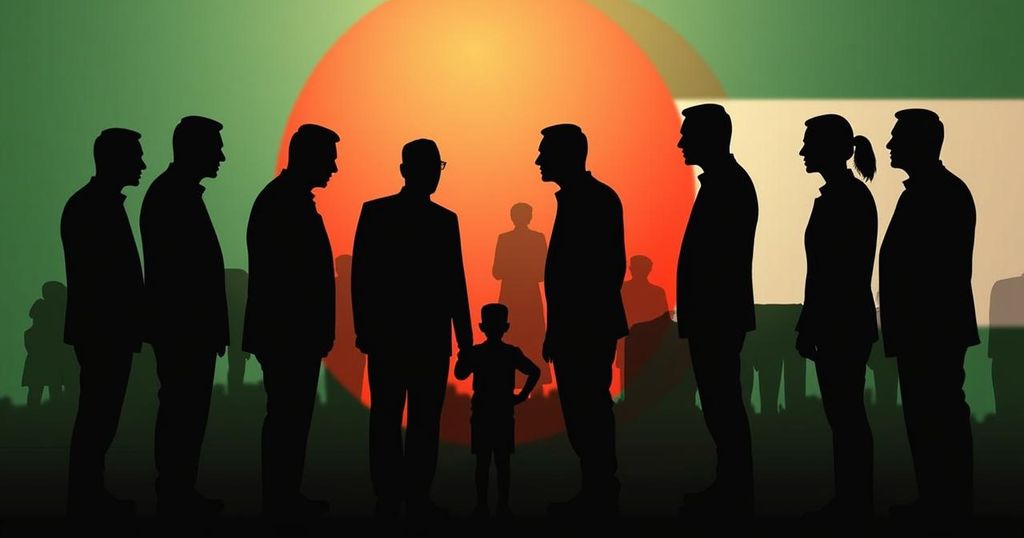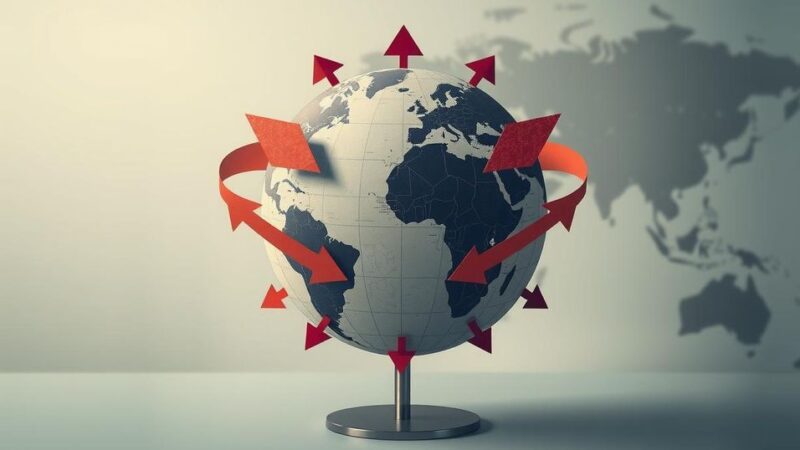Bangladesh has recalled five envoys, including Mustafizur Rahman from India, amidst a political crisis following Prime Minister Sheikh Hasina’s resignation on August 5 due to violent protests. The Ministry of Foreign Affairs has directed these diplomats to return to Dhaka and transfer their responsibilities. Over 700 individuals have reportedly died during the protests, adding strain to Bangladesh-India relations and raising concerns about minority violence stemming from the political turmoil.
In a significant diplomatic overhaul, Bangladesh has recalled five of its envoys, including Mustafizur Rahman, the country’s High Commissioner to India. This decision follows the volatile political scenario characterized by mass protests that ultimately led to the resignation of Prime Minister Sheikh Hasina on August 5, prompting her to seek refuge in India. The Ministry of Foreign Affairs instructed the affected ambassadors, including representation in Brussels, Canberra, Lisbon, and New Delhi, as well as the permanent mission at the United Nations in New York, to return to Dhaka forthwith. They have been mandated to hand over their duties immediately. The recall comes in the wake of Saida Muna Tasneem, the ambassador to the United Kingdom, who was similarly summoned back earlier. The political upheaval has resulted in over 700 fatalities amid the student-led movements against the government, thereby straining diplomatic relations between Bangladesh and India. The two nations share a significant border spanning approximately 4,000 kilometers, which includes maritime boundaries in the Bay of Bengal. Moreover, with the change in administration, there have been rising concerns over violence against minority groups, particularly Hindus, although the government has attributed the violence to political motivations rather than religious animosity.
The current political situation in Bangladesh has been tumultuous, marked by widespread protests that culminated in the resignation of Prime Minister Sheikh Hasina. Following her departure, the political landscape has seen increased unrest, particularly affecting minority communities, notably the Hindus. The recent diplomatic reshuffle involving several envoys appears to be a strategic response by the Bangladeshi government to address its changing political dynamics and to perhaps realign its diplomatic focus, especially in relation to India, a key regional partner. Since India and Bangladesh share a long border and have closely intertwined interests, these recent developments are critical for understanding the evolving relations between the two nations.
The recall of envoys represents a decisive response by the Bangladeshi government amidst ongoing political upheaval. While this diplomatic reshuffle showcases a restructuring of its foreign relations, the backdrop of civil unrest and violence raises critical questions about stability within the country and its implications for regional diplomacy, particularly concerning India.
Original Source: m.economictimes.com






